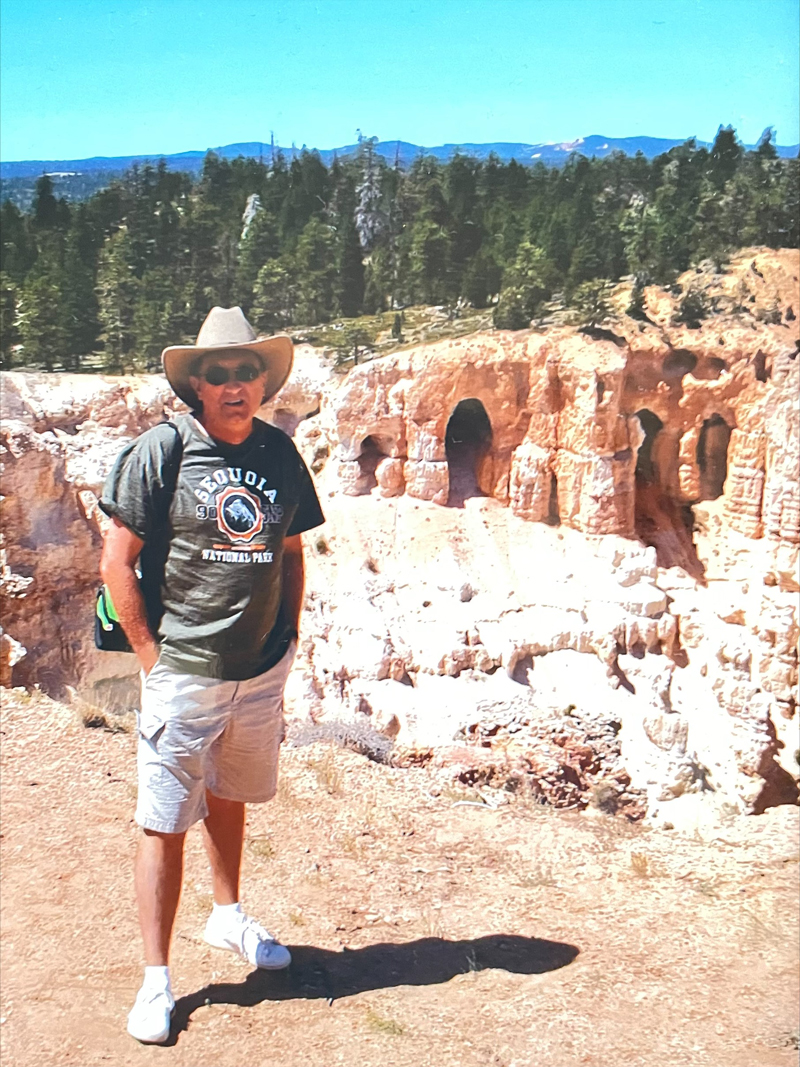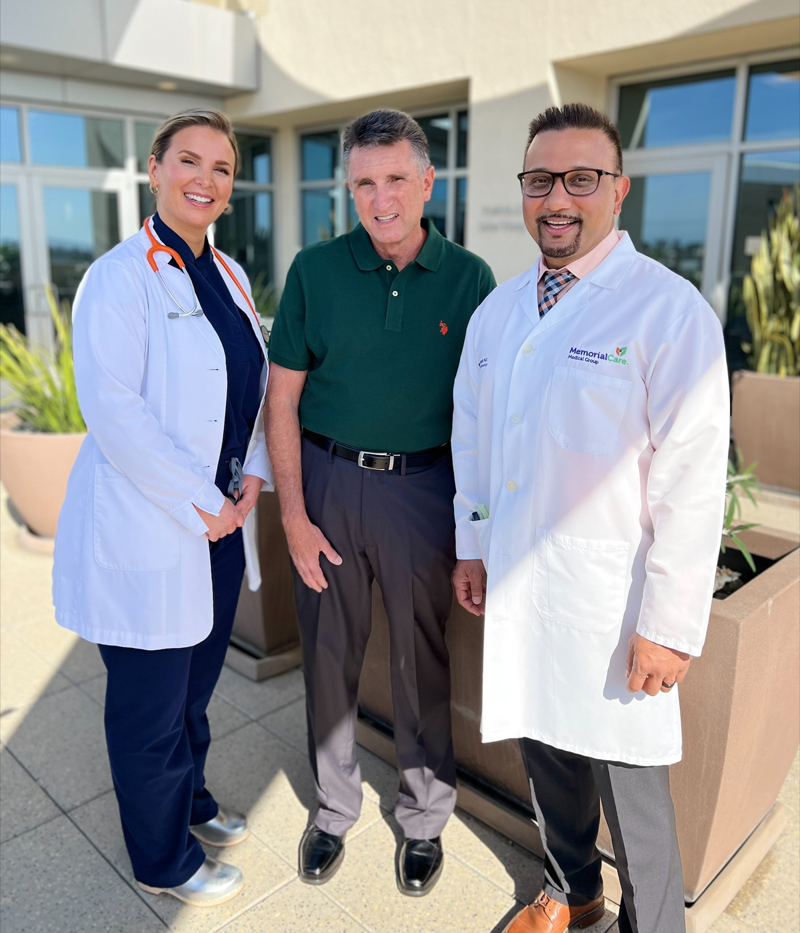
One day, Andrew Gordon did his normal morning routine, but noticed changes in his bowels. He followed up with a visit to his primary care physician, who told him that he was experiencing signs of colorectal cancer. Andrew immediately scheduled a colonoscopy, but it took some time for his results to get back to him. Worried about how to move forward, Andrew called his mother, who previously had colon cancer, and asked for advice. Andrew’s mother introduced him to her oncologist, Milan R Sheth, M.D., who practices at the MemorialCare Todd Cancer Institute at Long Beach Medical Center. Dr. Sheth diagnosed Andrew with stage 3 colorectal cancer in 2021, and made sure to put him in the hands of the right people to take care of his tumor.
“I find myself in the unique position of being both Andrew’s and his mother’s oncologist,” says Dr. Milan Sheth. “Many people don’t realize that cancer can be hereditary. Andrew was scheduled to be screened earlier, but I’m glad we were able to catch his cancer before it got more advanced. He was in a position where he was still treatable and able to make a full recovery."
Understanding Andrew’s situation, Dr. Sheth looked to Dr. Imad Shbeeb, who is the medical director of colorectal surgery at the MemorialCare Todd Cancer Institute at Long Beach Medical Center, for his expertise and experience in colorectal surgery. Dr. Shbeeb specializes in minimally invasive colorectal and gastrointestinal surgery, which he used to remove the cancerous growth from Andrew’s lower colon. Dr. Shbeeb uses the da Vinci Xi surgical system for all of his procedures, which acts as an extension of his hands in order to provide the greatest precision possible. The benefits of robotic surgery include less pain, minimal scarring shorter hospital stays and a faster recovery.
“Andrew’s colorectal cancer had progressed to stage three,” says Dr. Shbeeb. “We had to remove over a foot of Andrew’s lower colon, which included the tumor and the surrounding flesh that the cancer could have spread to. Thanks to the laparoscopic surgery done using the da Vinci Xi surgery system, Andrew was able to go home faster than if he had traditional surgery.”
After staying at Long Beach Medical Center for four days, Andrew went home. Shortly after his discharge, Andrew underwent six weeks of chemotherapy. Initially, he was nervous, but with the guidance from Dr. Sheth and the team at the MemorialCare Todd Cancer Institute, Andrew was able to calm his nerves.
“My first chemotherapy appointment was amazing,” says Andrew. “You really couldn’t have a nicer staff. If I had any questions, they actually listened and talked to me, making sure I understood everything that was going to happen and explaining the procedures and what to expect thoroughly.”
 Fortunately, Andrew went through the treatment with ease and in a short time frame, since the team at the MemorialCare Todd Cancer Institute caught the colorectal cancer before it became untreatable. However, Andrew ruminates on how he could have caught the cancer even sooner if he was able to follow through with the colonoscopy he had scheduled a couple years prior. Unfortunately, due to the COVID-19 pandemic and other personal problems, Andrew delayed his colonoscopy like so many others at the time.
Fortunately, Andrew went through the treatment with ease and in a short time frame, since the team at the MemorialCare Todd Cancer Institute caught the colorectal cancer before it became untreatable. However, Andrew ruminates on how he could have caught the cancer even sooner if he was able to follow through with the colonoscopy he had scheduled a couple years prior. Unfortunately, due to the COVID-19 pandemic and other personal problems, Andrew delayed his colonoscopy like so many others at the time.
Andrew now advocates for everyone to get screened, especially if they have a history of colon cancer in their family. Andrew’s cancer looked to be hereditary because his mother had it, but Andrew never really thought he would happen to him since he was healthy for his age.
Many people with colorectal cancer experience no symptoms in the early stages of the disease, which is why it’s so important to get regular screening tests. Screening tests can find precancerous abnormal growths in the colon or rectum that can be removed before they turn into cancer - essentially preventing the disease. For those at average risk, it’s recommended that regular screenings begin at age 45.
“I think everyone should get screened no matter what,” says Andrew. “It’s so easy now with how far technology has advanced, so people shouldn’t be afraid of the procedure or the time commitment. These kinds of diseases can be caught and are a lot more survivable when caught early.”
Since receiving care at the MemorialCare Todd Cancer Institute, Andrew has returned to his active lifestyle and has been hiking frequently and playing his guitar. Each day, he feels healthy and refreshed thanks to the physicians and staff who supported him along his cancer journey.